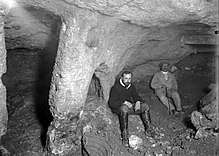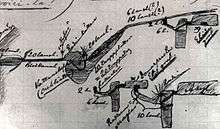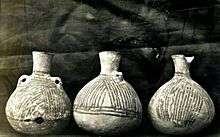Montagu Brownlow Parker, 5th Earl of Morley


Montagu Brownlow Parker, 5th Earl of Morley (13 October 1878 – 28 April 1962) was a British aristocrat and army officer, best known for being one of the first real-life "Raiders of the Lost Ark".
Lord Morley's father was Albert Edmund Parker, 3rd Earl of Morley. He was educated at Eton and served as a Captain in the Grenadier Guards in the Second Boer War between 1900 and 1902, where he was wounded. He was Aide-de-camp to GOC Germiston District, South Africa in 1902 and to GOC Home District in 1903. He fought in the First World War during which he was mentioned in dispatches and decorated with the Croix de Guerre.[1] He inherited the earldom and other titles in 1951 after the death of his older brother Edmund Robert Parker, 4th Earl of Morley.
Lord Morley led the "Parker Expedition", which carried out excavations searching for treasure from Solomon's Temple between 1909 and 1911. Neil Asher Silberman described the expedition as "Conceived in folly, but planned with cunning, the Parker Mission had come to Jerusalem with a single goal: to locate and unearth the fantastic treasure of Solomon’s Temple buried beneath the Temple Mount."[2]
Lord Morley died at the age of 83 in 1962. He was unmarried and was succeeded in the earldom and other titles by his younger brother's son John St Aubyn Parker, 6th Earl of Morley.
Hughes Vincent Map
The first expedition map documented the location of tunnels and artifacts discovered in and on the bedrock in the areas around Warrens Shaft on the eastern slopes of the mountain above the Spring Citadel over the Gihon Spring. In recent years many of the map elements were verified by archaeologists Ronny Reich and Eli Shukron.

References
- ↑ The Peerage, entry for 5th Earl of Morley
- ↑ Silberman, Neil Parker (July–August 1980). "In Search of Solomon's Lost Treasures". Biblical Archaeology Review. 6 (4). Retrieved 23 October 2014.